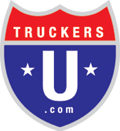When we think of a team, we think of a group of individuals working together to achieve a common goal. In trucking, we think of ‘the team’ as the trucker, dispatch, safety department, and sales, but we tend to forget many teams today are made up of smaller groups of individuals called units, which are the components of the whole team. In other words, the trucker and trucking company form one unit in the scope of the entire logistics team. The other units, which make up this team, can include freight brokers, 3rd Party Logistics Companies (3PL), the shipper and receiver.
When any two units of the team are in conflict, the entire team suffers. If each team member is only interested in his or her own benefit without regard to the effect on the other members, the entire team’s efforts will fail. It’s important for all the units which make up the team to work together.
Think of a football team, with several different types of special units which make up the entire team. Each of these special units; kick-off return, short yardage, punting, offense, defense; must work toward the same objective when they’re on the field. The ultimate goal for each unit is to get the ball across the goal line and put points on the scoreboard. If the kick-off return unit is constantly leaving the offensive unit on the one-yard line with first and ten, and ninety-nine yards to the goal line, the entire team has to cover for this set back. The team has to work that much harder for success, and most likely won’t get to put the championship ring on the team members’ hands. But when that kick-off return unit is constantly placing the ball near the fifty-yard line, then the offensive and other team units have a greater opportunity for success.
In the transportation of goods, the trucking company, freight broker or 3PL must work for each other’s benefit so their services are of value to the shippers and receivers for which they haul. If the trucker or broker suspects – or knows – they’re not being treated fairly and honestly, the shipper and receiver will find the quality of service will diminish. This is human nature.
Trucking requires the same dedication to task as the football team mentioned earlier. Each team unit must pull its own weight. If the trucking company is late on pick-ups and deliveries, it weakens the team. If the broker is charging the shipper a fair hauling rate but is not paying the trucking company a reasonable rate for their services it weakens the team. If the shipper or receiver constantly requires the trucks picking up or delivering to facilities to wait for hours before being loaded or unloaded, it weakens the team. For the team to succeed, every team unit must work with the same goal in mind. Trucker, trucking company, broker, 3PL, shipper and receiver need to be on the same team. As each unit looks at its business model, members must be sure it will benefit the others and themselves.
To be a successful team, all members of the team must work in harmony toward the same goal. The actions of good team members are:
Understanding responsibilities
Everyone must know what is expected of every member of the team.
Common goals
Be sure each team member is headed for the same shared objectives.
Dealing with change
Be prepared for the worst-case scenario, or the smallest event that could require a change of direction or plan.
Dealing with conflict
Have a plan to deal with the inevitable disagreement or conflicts that arise in the course of booking, scheduling, dispatching, picking up, hauling, and delivering of shipments between team members.
Sharing information
Be transparent with information between team members. The better each team member understands the needs and circumstances of other team members, the easier it is to reach success.
Sharing ideas
Be ready to share innovations with the entire team and improve the quality of how tasks are completed, ultimately bringing greater success to the team.
Team Maintenance
Just as a truck will never be denied its maintenance, the same holds true with maintaining any business relationship. Situations change, needs change, and if you’re not aware of them in regards to other team members, you’ll find yourself benched or out of business.
Direct communications
Communicate, communicate, communicate. Keep all team members in the loop at all times, regardless of whether it’s good news, bad news, or just keeping them up to date on what’s going on with the loads.
Developing trust
The most important component of keeping a team focused on the goal is trust, so constantly work on earning the trust of other team members. And remember, actions speak louder than words.
To name the components of good teamwork is the easy part of bringing together a well-running logistics team. The challenge is to take the individual members and assemble them into an effective load-moving machine. Each member of the team has a responsibility to complete all required tasks, handle any changes in the course of the job and to finish. within the time specified.
Finally, another definition of a team is a group of individuals working towards a common goal by working together as one. Do we think of the trucking company as one team, the broker or 3PL as another team, and the shipper and receiver as two more teams? To create a well-oiled shipping machine, each of these separate teams needs to become the units of the winning team. This requires cooperation between each team unit, understanding the needs and wants of each unit, and all members working for the benefit of each other.
Timothy D. Brady © 2020

